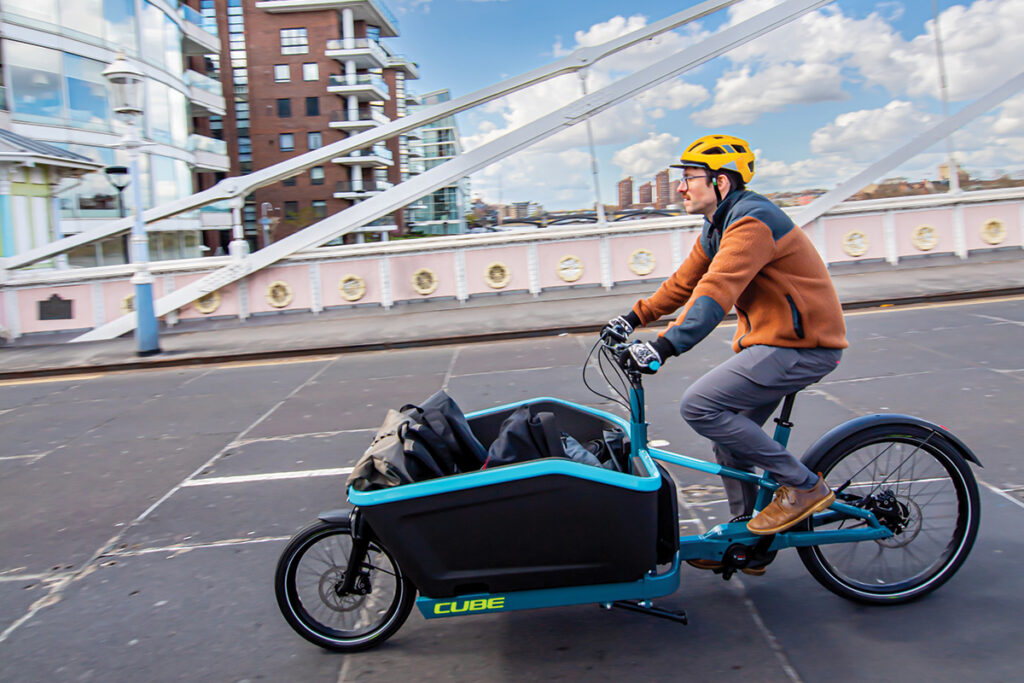
In the bustling urban landscapes where traffic congestion and environmental concerns prevail, a new player has emerged to transform the way goods are transported – the electric cargo bike. This eco-friendly and efficient mode of transportation is gaining traction worldwide, offering a sustainable solution to the challenges posed by traditional delivery methods.
The Rise of Electric Cargo Bikes
1. Sustainability at Its Core
Electric cargo bikes have garnered attention for their sustainable and environmentally friendly features. In an era where reducing carbon footprints is paramount, these bikes offer a clean alternative to conventional delivery vans and trucks. By relying on electric power, they produce zero emissions during operation, making them a green choice for last-mile deliveries.
2. Efficiency in Urban Settings
One of the significant advantages of electric cargo bikes is their ability to navigate through dense urban areas with ease. Traditional delivery vehicles often struggle with traffic congestion and limited parking, leading to delays and inefficiencies. Electric cargo bikes, however, can weave through traffic, utilize bike lanes, and access areas that are off-limits to larger vehicles, ensuring quicker and more efficient deliveries.
Features that Make Electric Cargo Bikes Stand Out
1. Cargo Capacity and Configurations
Despite their sleek and compact design, electric cargo bikes boast impressive cargo-carrying capacities. The cargo area, often positioned at the front of the bike, can accommodate various types of goods, from small parcels to larger packages. Some models even come with customizable configurations, allowing businesses to adapt the cargo space to their specific needs.
2. Electric Assist for Enhanced Performance
The electric assist feature sets these cargo bikes apart from traditional bicycles. With an electric motor providing assistance to pedaling, riders can cover longer distances and carry heavier loads without exerting excessive effort. This not only benefits delivery personnel but also contributes to the overall efficiency of the delivery process.
3. Smart and Connected Technologies
Many electric cargo bikes are equipped with smart and connected technologies to optimize their performance. GPS tracking, for instance, enables businesses to monitor the location of their fleet in real-time, enhancing route planning and overall logistics. Additionally, integrated electric systems allow for remote diagnostics and maintenance, ensuring that the bikes are always in top working condition.
The Impact on Urban Logistics and Businesses
1. Cost-Effective Operations
Electric cargo bikes present a cost-effective alternative for businesses engaged in last-mile deliveries. With lower operational costs compared to traditional vehicles, these bikes can contribute to significant savings in fuel, maintenance, and parking expenses. For small and medium-sized enterprises, in particular, this can make a substantial difference in their bottom line.
2. Reduced Traffic Congestion and Emissions
As cities continue to grapple with traffic congestion and air pollution, the adoption of electric cargo bikes offers a viable solution. By replacing or supplementing traditional delivery vehicles, these bikes help reduce the number of vehicles on the road, easing traffic congestion and lowering emissions. This not only benefits the environment but also contributes to creating more livable and pedestrian-friendly urban spaces.
3. Enhanced Brand Image and Customer Relations
The use of electric cargo bikes aligns with the growing consumer demand for sustainable and eco-friendly practices. Businesses that embrace this green approach not only contribute to environmental conservation but also enhance their brand image. Customers are increasingly conscious of the ecological impact of their purchasing decisions, and companies that prioritize sustainability are likely to build stronger relationships with their clientele.
Challenges and Future Outlook
1. Infrastructure and Regulation Challenges
While electric cargo bikes offer numerous benefits, their widespread adoption faces challenges related to infrastructure and regulations. Cities need to invest in bike-friendly infrastructure, including dedicated bike lanes and secure parking facilities. Moreover, regulatory frameworks must evolve to accommodate the unique characteristics of electric cargo bikes, ensuring their safe and efficient integration into urban environments.
2. Technological Advancements and Innovation
The future of electric cargo bikes holds promise, with ongoing technological advancements and innovations. Improved battery technology, increased range, and the development of more specialized cargo bike models are on the horizon. As these bikes become more sophisticated and tailored to specific industries, their versatility and applicability in urban logistics will likely expand.
Conclusion
The electric cargo bike is emerging as a game-changer in urban logistics, offering a sustainable and efficient solution to the challenges of last-mile deliveries. With their eco-friendly features, impressive cargo capacities, and smart technologies, these bikes are reshaping the way businesses approach urban transportation. As cities continue to embrace sustainable practices, the electric cargo bike is positioned to play a pivotal role in creating cleaner, more accessible, and livable urban spaces.
Recommended Articles: Electric Dirt Bike Adult